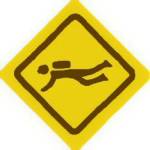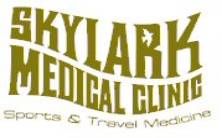
 |
Support Your
Local SCUBA
Working with the Canadian SCUBA Industry to Promote Safer diving
Learning to SCUBA dive
Self Contained Underwater Breathing Apparatus (SCUBA) diving is an exciting and interesting sport enjoyed by many Canadians yearly at home and on vacation abroad.
SCUBA is considered a safe sport. SCUBA diving has fewer fatalities associated with it than downhill skiing by comparison.
Those planning to dive are screened for physical problems that would be affected by the pressure of diving and are instructed how to dive safely.
Learning to Dive while on vacation
Many travelers learn to Scuba dive while on vacation – in resorts, cruise ships or in local dive shops. Usually there are no problems but occasionally dive injuries occur that could have easily been prevented if the traveler was better instructed or had been using better diving equipment.
Dive Shops in Canada
Professional Dive shops are registered through Official organizations such as PADI (Professional Association of Divers), NAUI or others. All are recognized as qualified to teach SCUBA diving to beginners and offer advanced skill courses as well. Their equipment is well inspected. How Classes are organizedDive shops will periodically organize classrooms throughout the year even during the winter. A typical course may be organized during evenings or on a weekend and last about a week.Divers are introduced to the basic concepts involved in diving are taught and how pressurized air will affect people. The goal is to give each diver a practical understanding of how to react in the water. It is intended for an average person and does not teach advanced physics concepts so no one who really tries should worry about failing. Many of these simple principles could be easily summarized in a 15-minute “pep talk” These concepts are taught carefully so that they are understood, reflected upon and discussed during the classroom time. At the same time limited diving takes place usually in a local pool where task skills are shown and even games played to make each participant comfortable with the dive environment. After the classroom and pool sessions a written exam is done.
Certifying for SCUBA divingThe last part the Open dive exam, will take place in a local body of water, and weather permitting. In Winnipeg, open water dive tests take place at West Hawk Lake but can only take place from late Spring to Fall. Divers wishing to finish certification must either wait or do their Open Dive someplace else in the world.
Finishing the Open Water Dive AbroadMany people will actually plan to take their classroom and pool lessons locally and then certify while away on vacation in the winter. The documentation from these sessions is given to an affiliated dive shop abroad who then finishes the certification. Why take a class when a quick on the spot “dive encounter” offered by a resort will get me diving quicker and a lot cheaper?
One of the problems with dive encounter programs run by resorts run overseas is that they are not correctly run. Teaching a group of people simultaneously to dive in 1-2 hrs is not allowing enough time and cuts too many corners. Most of the time most people will not have any problems if they remember not to hold their breaths, but this is taking a huge chance. Underwater strokes are sudden and tragic.We strongly recommend travelers wanting to learn to dive to get the best instruction possible.
What about equipment, should I trust the local dive shop?
Some experienced divers bring their own equipment but most will use equipment from a reputable dive shop. Some individuals who have their own regulator prefer to rely on this. Resorts and Dive shops will usually have a full complement of everything needed but divers who have difficulty getting a good fit with their fins or facemask may prefer to use their own. Air Quality in Tanks
Air is prepared by compressing local air to refill tanks. The compressors should not be near sources of pollution (car exhaust). The quality of air provided is good and travelers can be assured that this is not a problem in certified dive shops abroad
Local Dive Shops in Winnipeg
3 Fathoms163 Henderson Ph 668-2816Diver's Den311 Pembina Ph 453-6300
One Stop Diving731`St Mary's Ph 257-2822
Underworld Scuba and Sport 1841 Portage ave R3J0B3 Ph 837-9047
This pamphlet was produced by the Skylark Medical clinic independently and was not sponsored or paid for by any of the Dive stores or associations listed. We wish to communicate the importance of good instruction that can be provided locally for divers.
In the last few years we have had two preventable dive injuries and one fatality all that occurred overseas and wish to caution travelers.
A, a 25-year-old woman had attended a Dive program in Thailand and despite the fact that she had vomited throughout her classes she was still passed. On her return to Canada she was made sicker by her flight home. She sought medical care late but on review had no discernable neurological injury although she still described herself as not feeling right.
B, a 37-year-old man had dived as part of a resort program in Mexico. After his flight home he developed symptoms of decompression illness and received hyperbaric treatment .
C, an experienced diver had rented equipment in Mexico, including a regulator that another diver had commented was not working well the day before. On her last dive she made a sudden ascent and died at the surface. Her equipment went missing for 2 days. When inspected nothing was found
Dr Gary Podolsky prepared this pamphlet for submission to the International Society of Travel Medicine Subcommittee on Creating Liaisons with the Travel Industry. Comments are welcome. Manitoba Underwater Council - A community for SCUBA divers. Skylark Medical Clinic264 Tache ave. Winnipeg MB R2H 1Z9 204.453.9107 |
 |

